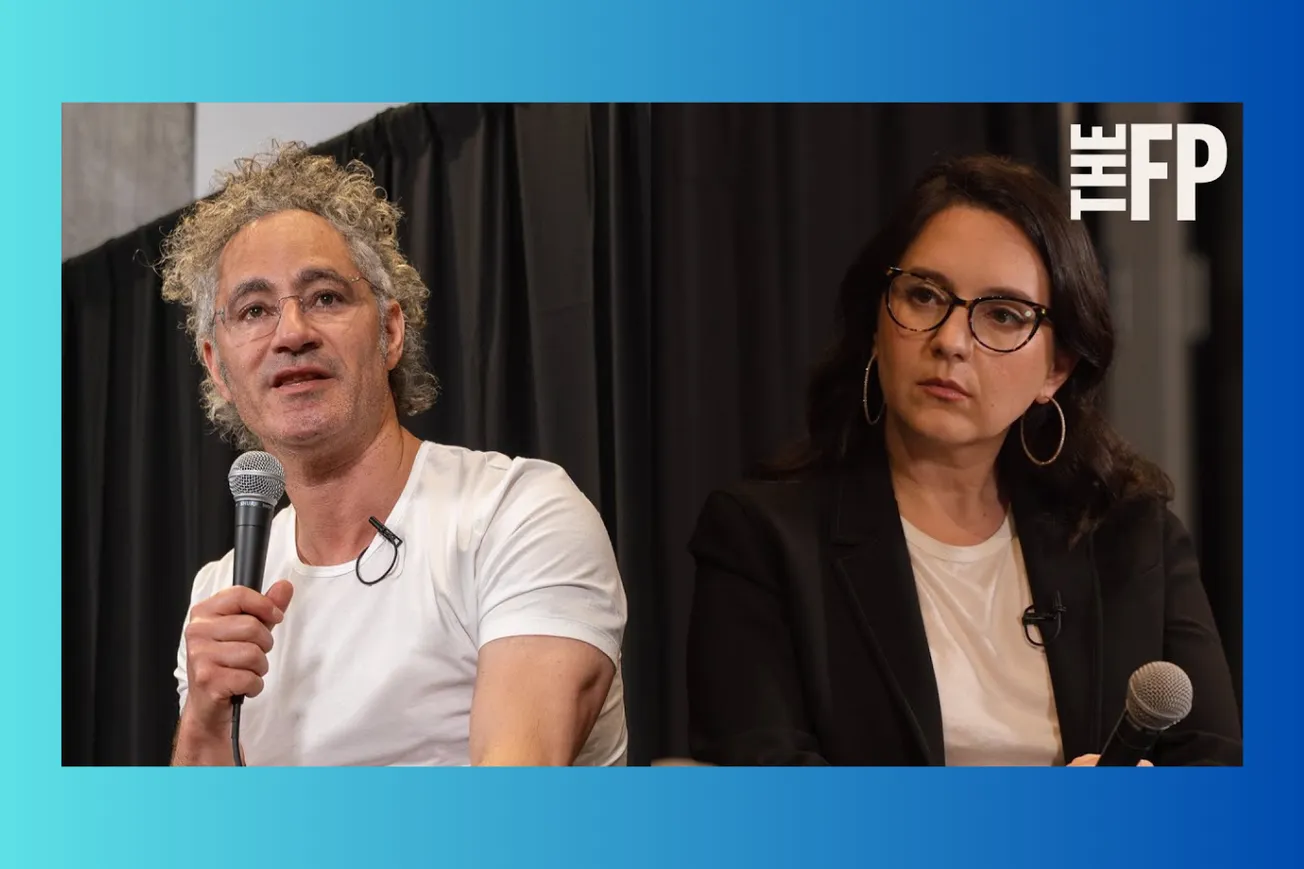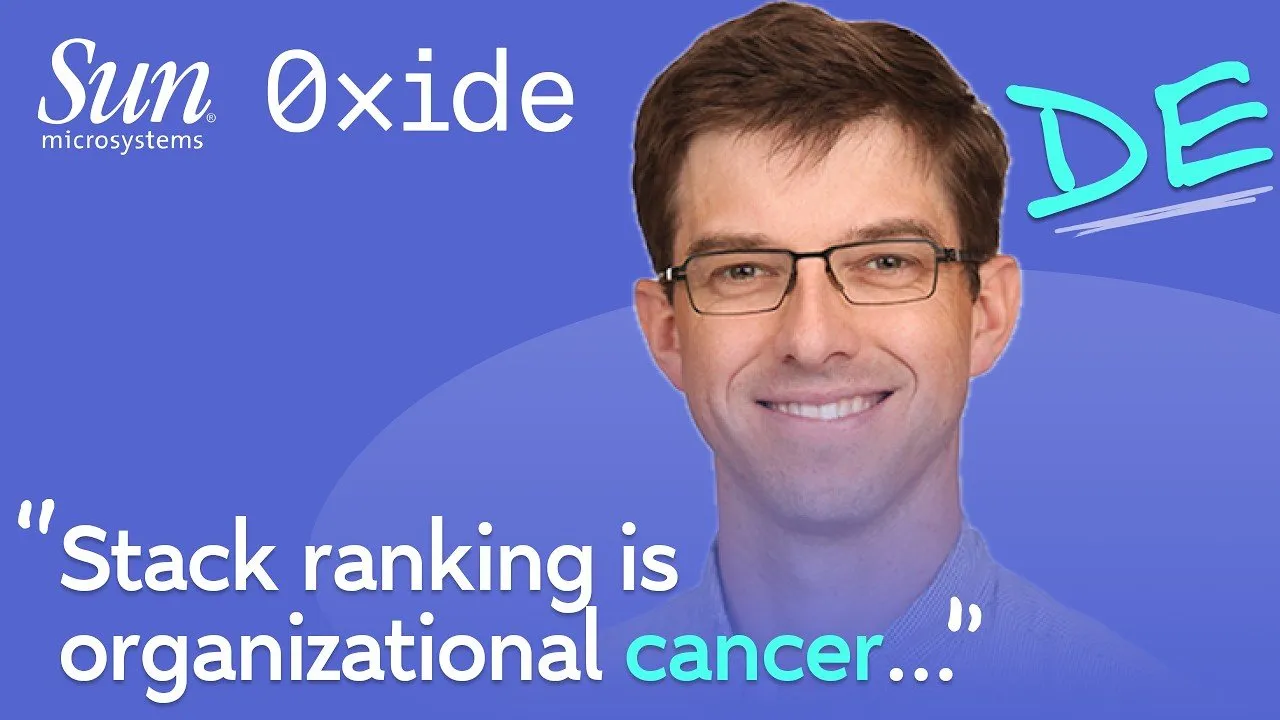Table of Contents
The Palantir CEO delivers an unfiltered manifesto on dyslexia, defense tech, and why America's tech elite abandoned their patriotic duty.
Key Takeaways
- Alex Karp transformed dyslexia from academic handicap into competitive advantage through forced interpretive thinking
- Silicon Valley abandoned national purpose for trivial consumer apps, creating dangerous disconnection from American interests
- Elite universities promote ideological conformity that prevents students from building meaningful institutions
- Mass immigration economically devastates working-class Americans while progressive elites ignore obvious contradictions
- Government efficiency requires eliminating waste while ensuring institutions actually deliver measurable results to citizens
- Free speech protection demands defending offensive, stupid, and heinous speech against inherent human censorship impulses
- Western democracy survives only when institutions produce tangible fruits that justify citizens' continued democratic participation
- Academic rigor teaches plausible argument construction, essential skill for convincing intelligent people in business contexts
- Fighting for thoughtful liberty requires different approaches but universal willingness to engage in intellectual combat
Dyslexia as Competitive Advantage in Building
- Karp's severe dyslexia forced development of interpretive layers when engaging with texts, business plans, and relationships, preventing the master-slave dynamic where staff become masters through constant agreement. This intellectual independence proves crucial for original thinking in complex environments where conventional approaches fail.
- The hermeneutic tradition from Germanic intellectual culture provides framework for understanding dyslexic processing as "forced hermeneutics" - requiring creative interpretation that ultimately makes texts and concepts become part of the thinker rather than external authorities to follow blindly.
- Academic achievement despite dyslexia required bringing extra energy to reading and writing tasks, developing unusual data processing capabilities that excel with sparse or non-existent information where others struggle with information overload or analysis paralysis.
- Family intellectual environment combined with processing differences created unique position: "I was the odd duckling in my family although my dad is actually kind of slightly dyslexic and my uncle's slightly dyslexic but not as pronounced like I got the full-on dosage."
- Recognition of cognitive limitations paradoxically creates advantages: "you think at a paler everyone's dyslexic I am the only person who knows it" because understanding your intellectual boundaries prevents delusion about universal competence.
- Dyslexic advantage extends to business leadership where avoiding areas of weakness while maximizing strengths becomes essential: "if you think you're equally intelligent in all areas it's only because in most areas you haven't met someone who's really intelligent and you're just deluding yourself."
Silicon Valley's Abandonment of National Purpose
- The technology sector shifted from Manhattan Project-style collaboration between government and private enterprise toward building "things in the easiest way possible" that are "at the margin going to be detrimental for our society" rather than advancing national defense capabilities.
- Market mechanisms alone cannot price endeavors that serve purposes "larger than yourself that are more meaningful than yourself and where that endeavor probably can't be fully monetized," requiring conscious choice to pursue difficult, dangerous projects with higher social value.
- Elite educational institutions taught people "it's better to believe in nothing than into something" while following "pre-ordained Arc" focused on "self-advancement" rather than genuine commitment to building important things that advance American interests and Western civilization.
- The reaction against Palantir initially reflected deeper ideological problem: "we were calling into question the very hierarchy of norms meaning non-hierarchy of norms that powered the decisions people were making" by suggesting some causes deserve greater commitment than others.
- Current shift toward defense technology startups demonstrates renewed recognition that "if you couldn't make money building Palante cheer or other defense Tech startups the idea would be an idea they study in some faculty by people who can't get a job."
- Building meaningful technology requires hierarchical understanding of good and bad: "why would you take the risk and the effort to build something hard and difficult you might fail at that would Advance our defense if you're defending our if our culture and the people we're defending ourselves against are as good as rational as moral as likely to behave rationally."
Academic Institutional Corruption and Ideological Capture
- Universities became centers of "anti-discrimination" while simultaneously practicing discrimination "against the a people that has the longest history of discrimination in the history of humanity" - revealing fundamental contradiction between stated principles and actual behavior patterns.
- Elite institutions promote "universalistic undiscussable presupposition behind which there's a grift" that prevents examination of institutional dysfunction because "you cannot problematize it in academic language" without committing heresy against the dominant ideology.
- The "pagan religion" of wokeness combines religious characteristics (unverifiable assumptions) with pagan elements (anti-Semitic worship) creating "charismatic thin Pagan religion can bring together Hamas and the feminist Department of in University" despite obvious contradictions.
- Academic leaders consistently respond "I don't accept your frame" when asked to name any institution run according to their beliefs that actually works by basic input-output metrics, revealing intellectual dishonesty about institutional effectiveness.
- Students witness aesthetic similarities between campus activism and historical extremism: "if you just like took turned off the volume and watch what's happening these conferences or these campuses you would think it's a reaction of the KKK like MTH everyone's masked they're burning things."
- The fundamental problem requires defending institutions that produce results: "you cannot expect Society to support something that is not supportable" when waste, fraud, and ideological capture prevent universities from fulfilling educational missions.
Immigration Policy and Working Class Economics
- Progressive abandonment of anti-illegal immigration positions represents betrayal of working-class constituents who "will disproportionally suffer under unlimited migration" while "this country is not in favor of illegal migration is actually in favor of legal migration" according to public opinion.
- Historical progressive position viewed Chamber of Commerce support for "tacit illegal migration to America" as harmful to workers, making current Democratic Party position a reversal of traditional labor protection principles that Bernie Sanders previously advocated.
- Economic effects of illegal migration prove "disastrous for poor people in this country disastrous" and "particularly bad for anybody who is like unlikely to be hired for whatever reason" - groups that progressive movements claim to protect.
- European lessons demonstrate dangers of allowing single-issue activists to control policy through coalition blackmail: in Germany "about 30% of Germans probably would welcome more migration but only about 15% of those people it's like issue number one and 100% of those people vote for the green party."
- Terror attacks and crime increases in Germany correlate with migration policy changes, yet "every time in Germany there's a terror attack in the morning in the evening the greens are out protesting against the far right it literally happens completely crazy."
- American working-class improvement requires multiple approaches: stopping illegal migration, improving education access, reducing neighborhood violence, adopting German-style vocational training, and addressing "intergenerational drug use" and "intergenerational prison attendance" impacts on performance.
Government Efficiency and Institutional Accountability
- DOGE initiative addresses fundamental problem that "you cannot expect Society to support something that is not supportable" when government institutions waste resources without delivering proportional value to taxpayers who fund operations.
- Three categories of government spending problems: obvious fraud waste and abuse, programs that don't work effectively, and expenditures on activities "that none of us want to pay for with our own money and it is our money" regardless of official justification.
- Democratic legitimacy requires institutional fruit-bearing: "we make the mistake at our Peril in the west to forget if we do not deliver fruits to our people in the form of a better fairer healthier Society we will lose people."
- German historical experience demonstrates importance of results-based evaluation: older Germans "moved to become Democrats" after seeing that "judge democracy by the fruits it bears" and witnessing superior outcomes under democratic versus authoritarian systems.
- American exceptionalism creates unique challenge and opportunity: "most of us unlike any other Society were born into this and have one essential frame" creating stability but also potential complacency about defending democratic institutions.
- Unit economics analysis applies to government programs just as in business: "what are the unit economics of what you're doing" determines whether public investment generates sufficient public benefit to justify continued taxpayer support.
Free Speech Defense and Censorship Resistance
- First Amendment protection requires defending "unpleasant somewhat idiotic stupid and you know uh often heinous speech" because "humans inherently would like to restrict it" making free expression naturally vulnerable to suppression by those holding power.
- Constitutional priority reflects fundamental truth: "there is a reason why it is the first amendment it's like people forget the banality of it's like it's not the Fifth Amendment it's not the 10th Amendment it is the very first amendment" because speech restriction represents constant human temptation.
- University environments should use "pins and needles of your sharp mind to win intellectual battles on an intellectual playing field" rather than other forms of coercion, while celebrating dialogue with offensive perspectives as First Amendment exercise.
- Self-censorship emerges when "the moment and the algorithm rewards the most extreme expression of things" causing "thoughtful people that I know people who are not in the extreme not politically pin downable are sort of receding" from public discourse.
- Future censorship threats will continue because "power is corrupting and it's very very hard to throw the ring into the mountain" requiring constant vigilance against natural human tendency to restrict uncomfortable information.
- Academic institutions embody free speech principles: "there is a reason why it is the first amendment" and universities that "embodies free speech in the First Amendment" serve as crucial defenders of intellectual freedom against societal pressure for conformity.
The Battle for Western Civilization
- American cultural foundations rest on unique combination of fairness, meritocracy, ego suppression "in the service of a larger concept," reduced political interference in building, and economic freedom to "keep the fruits of our labor in a way that in many other countries you couldn't."
- This system produces unmatched technological advancement: "the Delta between America's techine and every others is huge" because of organizational principles around ideas, fairness, and individual reward for productive contribution to larger societal projects.
- Fighting for these values requires different approaches suited to individual capabilities: "some people in this room I admire greatly because they fought quietly" while others "like me are willing to just you know throw a couple punches" but all require "willingness to fight."
- Western superiority demands explicit defense: "I am not saying all cultures are equal in fact I'm saying this nation is incredibly special and we should we should not view it as equal we should view it as Superior" despite academic taboos against such hierarchical thinking.
- Universities threaten democratic foundations through ideological corruption: "how do we stop the threat from universities that really are not Believers in our principles as a nation from corroding those principles to the point where we are then not a exceedingly rare country."
- Success in this battle requires builders who understand that "doing something important is crucially important for fulfillment" while maintaining rigorous standards for what constitutes "plausibly right certainly not wrong" in arguments, institutions, and national policies.
Democracy survives when institutions earn citizen support through measurable results. Karp's message resonates because he demands accountability from America's most privileged institutions while demonstrating how unconventional thinking can build companies that actually serve national interests rather than just shareholder returns.





